Most of my 2019 has been spent in a blur of hating words—my own. Editing a 140,000-word transcript that would eventually become a book forced me to confront daily misspellings, grammatical blunders, fact-checks, writing tics. It was enough to make me hate the act of writing more than I usually do.
The book hit shelves in September, so most of 2019 was spent getting it ready for publishing. It was a work of nonfiction in line with my day job at The New York Times; an insider story about a tech company’s culture gone awry at Uber. But since I spent most of my waking hours this year focusing on a story rooted in the real world, I prefer using my downtime getting as far away from it as possible. Reading for pleasure instead of work almost always consisted of fiction.
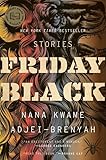



 I picked up The Penguin Book of Japanese Short Stories at the beginning of the year, in part because, honestly, I liked the cover design. But I also find reading short stories manageable, especially when I’m in the middle of a big project. To approach the end of a stressful day and be able to finish a 30-page story in one sitting feels damn good, like something akin to meeting the end of a section in a 500-plus page novel, but tidier. Normally I worry about missing the aesthetics of a native language in a translated work, but Jay Rubin’s translation abated that fear. I’m a sucker for magical realism; Murakami’s introduction set the tone.
I picked up The Penguin Book of Japanese Short Stories at the beginning of the year, in part because, honestly, I liked the cover design. But I also find reading short stories manageable, especially when I’m in the middle of a big project. To approach the end of a stressful day and be able to finish a 30-page story in one sitting feels damn good, like something akin to meeting the end of a section in a 500-plus page novel, but tidier. Normally I worry about missing the aesthetics of a native language in a translated work, but Jay Rubin’s translation abated that fear. I’m a sucker for magical realism; Murakami’s introduction set the tone.
My crippling reliance on Amazon for the most innocuous items led me down a comment-reading hole in February. As it turns out, people have very strong views on toilet plungers and sugar-free gummi bears.
I finally picked up Friday Black—another short story collection—after seeing Tommy Orange’s rave review of it. Orange was right. The book whet my appetite for looking at the worst possible versions of the future that aren’t as far-fetched as one would think. (I’m a huge fan of George Saunders, so Nana Kwame Adjei-Brenyah’s work was right up my alley.)
I stopped at Powell’s in Portland while touring for my book and saw a copy of A Visit from the Goon Squad on sale, a book I meant to read years ago but never got around to. I devoured it in two or three plane rides, an excellent cast of characters blended with rock music, angst, and the existentialism that comes with getting older. I’m mad at myself I hadn’t read it sooner.
I have this latent guilt when I read contemporary releases, which I will fully admit makes little sense. There’s a never-ending flood of books being released by talented people, but something inside my brain feels like I can’t allow myself to read new books when there are so many “classics” I’ve yet to read. How can I pick up something from 2019 when I haven’t read the best of 1819? It’s like a permanent backlog of shitty self-nagging; I don’t recommend it.
To deal with that, I try to throw at least one classic in the mix every month. I try to read Melville once a year, because I am the type of person who likes Melville. (I remember someone once saying “Never date guys who love Moby Dick,” a tidbit of self-consciousness I’ve never forgotten.) I picked up Pnin earlier this year; Nabokov is nothing if not controversial, but his mastery of voice and style keeps me coming back to him. I have a Willa Cather on my nightstand (My Antonia), and reread Wharton’s wintry Ethan Frome over the summer.
Some people read one book at a time before moving on to the next, but I’ve found reading a mix of books, genres, and mediums simultaneously is strangely soothing. Short stories, novels, a bit of poetry—it keeps the mind fresh, and I don’t feel stalled when I’m moving through something that is longer than 250 pages.


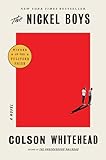
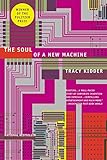
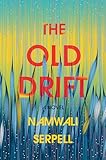
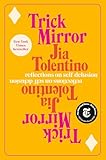
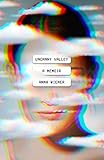 So after something like Atwood’s new book, I’ll go back and read All You Need Is Kill, an old manga that was the basis for the (underrated!) film Edge of Tomorrow. I’ve got a pile of Venom and Spider-Man anthologies I’m picking through—Maximum Carnage is one of them, focused on a fun psychopathic character. I’m also picking through the old Preacher comics; years ago, I bought the entire bound series of nine or so books off of some guy on Craigslist for a song. Totally worth it.
So after something like Atwood’s new book, I’ll go back and read All You Need Is Kill, an old manga that was the basis for the (underrated!) film Edge of Tomorrow. I’ve got a pile of Venom and Spider-Man anthologies I’m picking through—Maximum Carnage is one of them, focused on a fun psychopathic character. I’m also picking through the old Preacher comics; years ago, I bought the entire bound series of nine or so books off of some guy on Craigslist for a song. Totally worth it.
There’s this piece of advice I once received that I’ve never forgotten: “Life is too short and there are too many good books out there to keep reading books you aren’t enjoying.” Internalizing that felt liberating, and helped me put a few books down this year. (The first time I stopped reading a book in the middle of it was when I realized I didn’t like Jack Kerouac, and sold my copy of On the Road after about 100 pages.) I love Kazuo Ishiguro and read Remains of the Day, Nocturnes, and Never Let Me Go (again) this year, but decided about 150 pages in that The Unconsoled was just a little too out there for my taste.
I dutifully read Sally Rooney’s Normal People and enjoyed it, then moved to One Hundred Years of Solitude and couldn’t get into it, stopping halfway through. Colson Whitehead’s Nickel Boys was predictably great.
Of course, I still read nonfiction. It helps me make my own work feel and sound better, even if it doesn’t always give me that serotonin hit that fiction affords. I read business classics while writing my own book: The Soul of a New Machine, Barbarians at the Gate, The Smartest Guys in the Room, Den of Thieves. They reminded me how beautiful, elegant writing can be just as present in nonfiction as it is in other mediums.
I’ve had the amazing opportunity to see friends and mentors write wonderful books that have come out to much acclaim. Namwali Serpell, whom I was a research assistant for during my undergrad years as an English major, wrote the great Zambian novel with The Old Drift. Jia Tolentino’s Trick Mirror was, of course, as lovely as everyone knew it would be. I’m in the middle of Anna Wiener’s galley of Uncanny Valley, a memoir of her time spent in Silicon Valley.
I’m trying to branch out a bit more into science fiction, something I’m seeing flourish right now by authors of all walks. I have Jeff VanderMeer and Octavia Butler in the queue, and keep meaning to get into Tana French. Patrick Radden Keefe’s Say Nothing is burning a hole in my bookshelf; that’ll be up soon.
Perhaps I’ll make a dent in all of those in 2020—and hopefully not feel too guilty that they weren’t written at least a hundred years ago.
More from A Year in Reading 2019
Do you love Year in Reading and the amazing books and arts content that The Millions produces year round? We are asking readers for support to ensure that The Millions can stay vibrant for years to come. Please click here to learn about several simple ways you can support The Millions now.
Don’t miss: A Year in Reading 2018, 2017, 2016, 2015, 2014, 2013, 2012, 2011, 2010, 2009, 2008, 2007, 2006, 2005
The post A Year in Reading: Mike Isaac appeared first on The Millions.
Source : A Year in Reading: Mike Isaac














